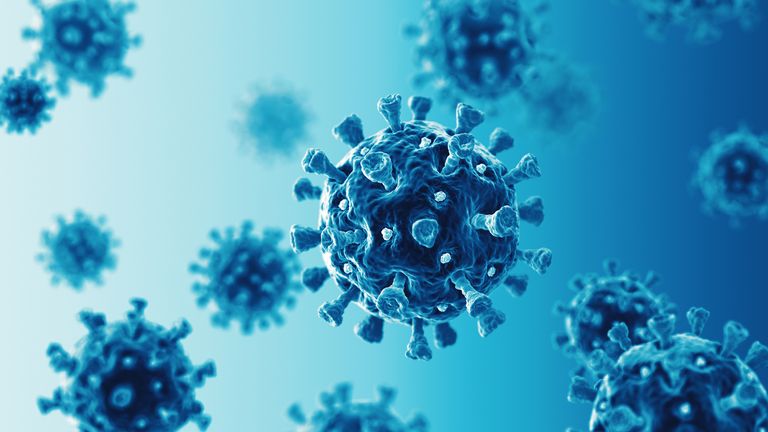People still have a detectable immune response six months after being infected with COVID-19, according to the first study of its kind.
The UK study found that people who had previously developed COVID-19 had raised levels of T-cells, an important back-up to antibodies in fighting infections.
But the researchers, from Public Health England and the UK Coronavirus Immunity Consortium, warn that it’s still not clear whether the T-cell levels were high enough to protect against re-infection.
Live coronavirus updates from the UK and around the world
Professor Paul Moss of the University of Birmingham, who led the Consortium, said the findings were “encouraging”, but important questions remain.
“It’s reassuring that evidence of immunity remains after this time,” he said.
“But one can’t translate this into protective immunity passports in any way. It does not mean these people are protected.”
Further large-scale studies are underway to confirm whether T-cells can prevent re-infection.
The researchers took blood every month from 100 people who had confirmed COVID-19 in March and April.
Six months on, all of them had CD4 and CD8 T-cells, which kill body cells that have been infected by a virus and rally the rest of the immune system to mount a fight-back.
The study, which has yet to be peer-reviewed, also found those who had coronavirus symptoms in the spring had T-cell levels 50% higher than those who were asymptomatic.
But the research doesn’t settle the debate over herd immunity.
:: Subscribe to Sophy Ridge on Sunday on Apple podcasts, Google podcasts, Spotify, Spreaker
Some scientists have argued that vulnerable people should be shielded while the virus is allowed to rampage through the young and healthy.
In theory once around 50-60% have been infected the epidemic should burn itself out.
Hopes of herd immunity were dashed last week by research from the Office of National Statistics showing that antibody levels in the population are declining, rather than growing.
But Professor Moss said even if T-cells are found to give some level of protection, nowhere near enough people in the UK have had COVID-19 to stop the virus spreading through the population.
“I don’t think there are huge implications for herd immunity from this,” he said.

